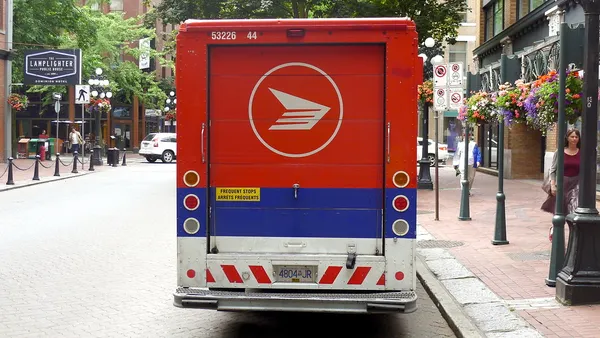Dive Brief:
- Voters in 22 states approved measures providing $201 billion in funding and new revenue for state and local transportation projects on Tuesday, the Transportation Investment Advocacy Center reported.
- Transportation funding measures are generally popular. Voters have approved an average of 74% over the past 10 years, and 2016 was the lowest rate in the last three election cycles.
- Most of the ballot measures focused on road and street improvements, but also included 54 general transportation measures, 21 general infrastructure initiatives, nine transit programs and one new toll.
Dive Insight:
Infrastructure investment was a major talking point this election cycle, as federal, state and local governments have struggled to fund new projects and repair existing ones. As a result, public sector construction spending has been consistently declining.
Industry groups have called on government at all levels to boost public investment in infrastructure, but broad initiatives to fund large-scale projects are often stalled by political infighting or a lack of resources. President-elect Donald Trump's emphasis on passing a massive infrastructure spending bill has construction groups optimistic that lawmakers will be able to agree on a solution.
Trump revealed his $1 trillion infrastructure plan in October. His team said the program would be largely funded through private investment, with tax credits going to investors willing to put up an equity stake in revenue-generating projects like toll roads, airports and utilities. Although industry experts have questioned the funding sources and feasibility of his proposal, construction and engineering stocks soared this week following Trump's win.
A February American Road and Transportation Builders Association study found that approximately 10% of the nation's bridges were structurally deficient in 2015. And in May, the American Society of Civil Engineers reported that the U.S. will lose an estimated 2.5 million jobs and $4 trillion in gross domestic product over the next decade if it can't overcome the impending $1.44 trillion deficit in infrastructure funding.
Although Congress passed a five-year, $305 billion highway bill in December, the Fixing America’s Surface Transportation Act was criticized for failing to resolve how Congress would pay for the bill long-term and for not establishing a permanent solution for future infrastructure funding needs.













